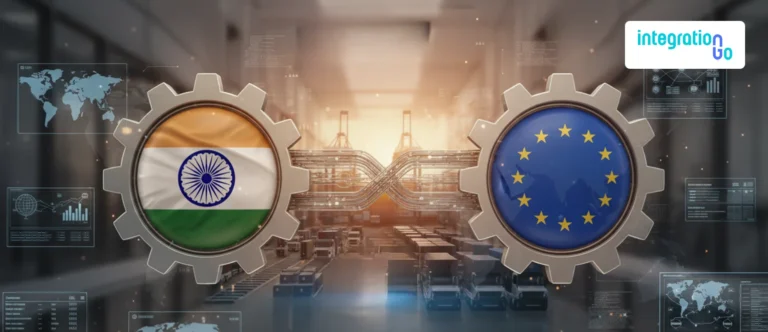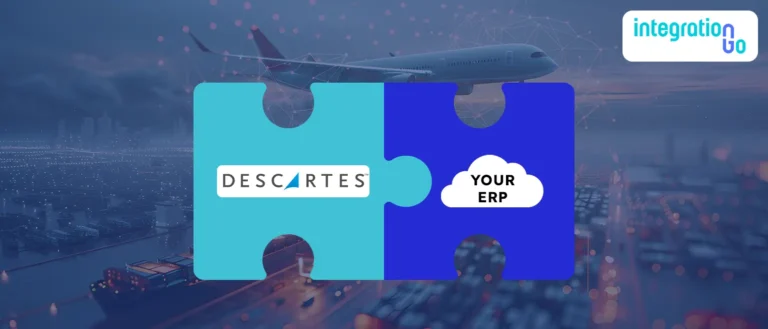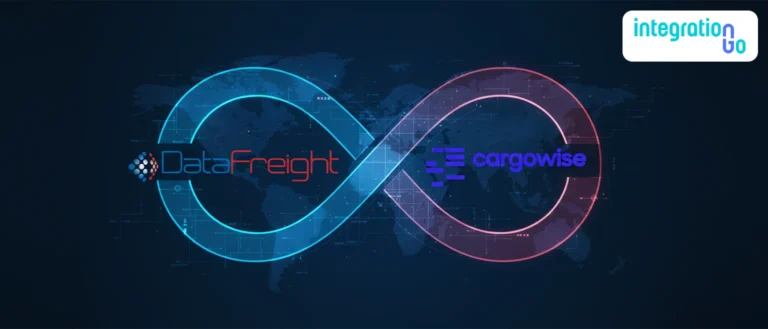"You can have the best shipping routes, the fastest freight, and the most advanced ERP, but if customs clearance fails, everything comes to an end."
Anyone who has ever handled international freight is all too familiar with this challenge. Your customer is waiting on the other side of the world, your cargo is prepared, and then all of a sudden, your shipment is held up at customs. Why? The incorrect HS code, perhaps. The data might not have matched. Perhaps it was simply a case of slow communication.
That one delay has the potential to disrupt your delivery schedules, annoy your clients, and cost your company far more than just time. And if you're still addressing customs with manual data input, disconnected systems, or endless email threads, you're working harder than necessary.
Customs integration is therefore becoming a must. Integrating your system with customs platforms can revolutionize your logistics operations, regardless of whether you use CargoWise One, SAP, Oracle, NetSuite, or another ERP. We'll explain it in simple terms in this blog, including what it means, why it matters, and how to make it simpler.
What Is Customs Integration?
To put it simply, customs integration is the process of integrating your internal systems with third-party customs platforms or brokers to enable automatic data flow.
Everything is connected, so you don't have to enter the same shipment information into your broker's system, customs portal, and ERP more than once. Once the data is sent by your system, it quickly reaches its destination. Additionally, you receive information from customs (such as clearance status or difficulties) without having to search for them.
If you're using CargoWise One, for instance, customs integration might allow you to connect your export declarations to the UK's HMRC, Australia's ABF, or the United States Customs (CBP) without ever leaving the platform. Making your data communicate across platforms is crucial to ensuring that nothing is lost in interchange and the same is true for other ERP systems.
Why Do So Many Logistics Teams Struggle With Customs?
Here are some real challenges logistics professionals face every day:
1. Re-entering the same data everywhere
You create a shipment in your ERP, fill in commercial details, and then re-enter it into a government portal or broker tool. It’s tedious, and mistakes are easy to make.
2. Visibility gaps
Once a declaration is submitted, it can feel like your shipment disappears into the void. You don’t know if it’s held, cleared, or needs attention unless someone calls you back or you log in somewhere else to check.
3. Country-specific complexity
Each country has its own customs rules. What works in the U.S. doesn’t fly in Germany or Singapore. Keeping track of codes, document requirements, and formatting is a full-time job in itself.
4. Slow responses
If you work with a broker and don’t have an integrated system, you’re stuck waiting for them to update you. When things go wrong, it can take hours or even days to find out what happened.
How Customs Integration Fixes These Problems
When your ERP or logistics platform is connected directly to customs systems or broker platforms, here’s what changes:
1. You only enter data once
You create a job in CargoWise or your ERP. The customs data (like HS codes, product descriptions, value, and consignee info) gets pulled automatically and sent to the right customs system. No retyping, no double-checking in spreadsheets.
2. You get real-time updates
You can see the customs status, like “Submitted,” “Held,” or “Released”, right from your system. You don’t have to chase emails or call someone for an update. It’s all right there on your dashboard.
3. You reduce errors
Customs integrations include validation logic. That means your system checks if the HS code is correct, if the required fields are filled, or if any critical information is missing, before submission. That way, you avoid rejected declarations or shipment delays.
4. You stay compliant, automatically
With customs rules changing constantly, your integration partner can help keep your formats and logic up to date. You don’t need to memorize every country’s compliance checklist anymore.
Who Benefits from Customs Integration?
- Freight forwarders: You can move shipments faster and keep your operations team focused on planning, not on paperwork.
- 3PLs and NVOCCs: You get better control over your data across multiple customers and platforms while reducing errors.
- Customs brokers: You can automate your intake process and eliminate manual entry from emails or PDFs.
- Manufacturers and shippers: If you’re using ERPs like SAP or NetSuite, customs integration connects your trade compliance team directly to customs processes, improving coordination and reducing risk.
You're losing productivity (and money) if your team has to manage spreadsheets, emails, and portal logins to clear shipments.
But Is It Hard to Set Up?
It's a valid question, and the response will vary depending on how you approach it.
Integrating customs can be challenging if you attempt to do it entirely internally without having the necessary logistics expertise. However, things change if you work with a supplier like IntegrationGo. What you receive is as follows:
- Pre-built connectors for CargoWise and major ERPs like SAP, Oracle, and NetSuite
- Support for multiple customs authorities across the U.S., UK, Europe, Australia, and Asia
- Ongoing monitoring and support so you’re not stuck troubleshooting APIs when something goes wrong
- Custom validation rules based on the country, the system, and your compliance requirements
The process usually starts with a discovery phase to map your current workflows, then implementation, testing, and go-live with real-time monitoring. And once it’s in place, you’re saving hours per week per team member, easily.
Conclusion
If your customs processes are still manual, unconnected, or error-prone, you are not alone, but you don't have to stay there.
Your team needs control, speed, and visibility to keep freight flowing and consumers satisfied, and customs integration provides all three. The approach is the same whether you're using CargoWise, SAP, NetSuite, or another ERP: break down the divisions, link your systems, and permanently automate the customs process.
Our specialty in CargoWise integration solutions assists logistics companies in creating intelligent, scalable, and compliant customs connections that are specific to your operations, systems, and regions.
We can create a customs procedure that you won't ever question.
To arrange a free discovery call and learn how we can optimize your customs operations from beginning to end, get in touch with our team at IntegrationGo.




